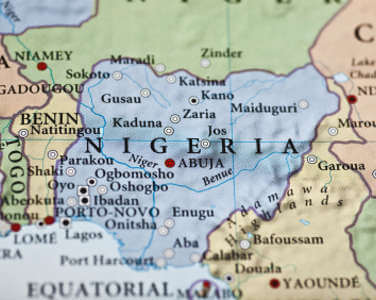
The rioting instigated by an Islamic extremist sect known as Boko Haram, which initially attacked police and government bases, left hundreds of people dead and large property losses. Islam’s strict Shariah law is already in force for Muslims in 12 northern states, but the sect is fighting to have it enforced more broadly in those states and to impose it throughout Nigeria.
“We are still taking inventory of how the crisis affected our members, but so far we have confirmed some of the Christians killed and churches burnt,” Samuel Salifu, national secretary of the Christian Association of Nigeria (CAN), told Compass.
Rampaging members of the sect burned 20 churches before police captured and killed Boko Haram’s leader, Mohammed Yusuf. Police say Yusuf was killed “while trying to escape,” but a federal government panel is investigating allegations that security agents executed him after arresting him alive in his hideout.
The chairman of the Borno state chapter of CAN, the Rev. Yuguda Zubabai Ndurvuwa, said many Christians abducted by Boku Haram extremists were yet to be found. He noted that the Christian community usually has been hardest hit in religious uprisings in Borno and other northern states. Violence started on July 26, when armed sect members attacked a police station in Bauchi state that set off a firestorm of violence that spread to the northern states of Borno, Kano and Yobe.
Those killed in Borno include Pastor Sabo Yakubu of Church of Christ in Nigeria (COCIN), the Rev. Sylvester Akpan of National Evangelical Mission and the Rev. George Orji of Good News of Christ Church International, Inc.
Church buildings burned in Borno include five branches of the COCIN denomination, two Catholic churches, two Deeper Life Church buildings, two EYN (Church of the Brethren in Nigeria) buildings, and buildings of the National Evangelical Mission, Celestial Church of Christ, Elijah Apostolic Church, The Lord’s Chosen Charismatic Revival Ministries, Assemblies of God Church, Redeemed Christian Church of God, Christ for All Nations, Baptist Church and Anglican Church, all in different parts of the state.
Nigeria has almost equal numbers of Christians and Muslims, with the north dominated by Muslims and the south largely Christian. Northern Nigeria has a history of religious crisis with heavy casualties among Christians.
A Maiduguri, Borno-based journalist, Abiodun Joseph, said members of the sect kidnapped his two sons after he and his family narrowly escaped being lynched by the sect members.
“They stopped us while leaving the estate where I live, which is close to their headquarters, and threatened to shoot myself and my wife if we resisted the abduction of my two sons,” Joseph told Compass. He found his sons two days later.
“It was a very harrowing experience as we were not sure what would happen to them, but we thank God that they were not killed like others,” Joseph added.
Many other abducted Christians, he said, were killed by rioters for refusing to renounce their faith.
Facing Loss
With calm restored, Pastor Enouch Atiyaye, chaplain of the University of Maiduguri Teaching Hospital, said Christians in Borno who were forced to abandon their homes have been returning to “face the loss of their family members and the burning of their churches and homes.”
“There is a general feeling of despair and dejection among Christians with a high degree of uncertainty, since we don’t know what can happen next,” Atiyaye told Compass. “The fear is that the Boku Haram group has many members who have entrenched themselves in the state over the years. They disappeared during the crisis and can regroup to fight back if necessary security measures are not in place.”
Based on the attack on Christians during the Boko Haram uprising and past experiences, CAN’s Salifu said the association has lost confidence in the ability of the government to provide security for the lives and property of its members.
“If the government continues the way it has been doing, the association would have to give conditions for the co-existence of the various groups in the country” Salifu said at a press conference in Abuja, the country’s capital, on Aug. 3.
Accusing Borno Gov. Ali Modu Sheriff of complicity in the emergence of the Boku Haram group, Salifu said Christians were apprehensive that there are dangers beyond what was apparent in the sect’s uprising.
“We have no doubt in our minds that they would have perceived Christianity as a Western religion, which to them is also haraam [sin] which must also be eradicated,” he said.
At the press conference the Rev. Ladi Thompson, international coordinator of Macedonian Initiatives, a Christian Non-Governmental Organization, accused the government of ignoring warnings by Christian leaders on Boko Haram activities, which he said could have been nipped much earlier.
The governor’s press director, Usman Ciroma, dismissed CAN’s claim of complicity by Gov. Sheriff, saying that it was preposterous and laughable that the tragedy that befell the state could be trivialized in that way.
“Which politician will be so suicidal as to set a group to kill his own people?” Ciroma reportedly said.
The governor, who denied any relationship with the Islamic sect, met with Christian leaders in Borno state for the first time on Wednesday, during which he disclosed plans to regulate preaching by religious leaders. For two years, according to news reports, attempts by Christian leaders to meet the governor over the plight of Christians in the state had been rebuffed.
“Government officials at the meeting tried to claim that Muslims were not more affected by the crisis, but the there is no indication that any mosque was burnt or any imam killed,” said a Christian leader at the meeting who requested anonymity.












































